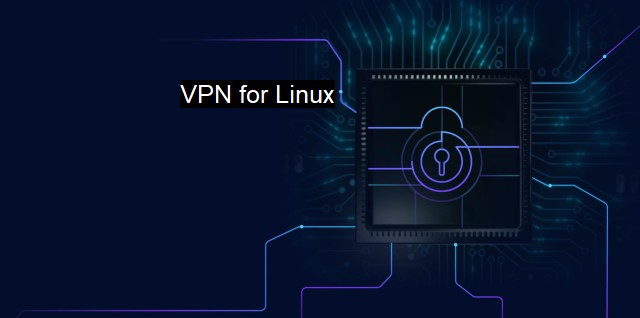What is VPN for Linux?
Enhancing Cybersecurity and Antivirus Protection: A Comprehensive Guide to VPN for Linux Devices
A Virtual Private Network, commonly known as a VPN, symbolizes a strict level of privacy protection communication medium. It affords both corporations and individuals the ability to protect their internet traffic from interference, surveillance, and censorship. With the rapid surge of VPNs, many have begun to wonder what exactly is VPN for Linux. They question, is it any different from other OS VPNs? If so, in what way?That said, VPN for Linux refers to a VPN service specifically created to work seamlessly with Linux, an open-source operating system. Given the humongous user base and versatility that Linux OS provides, VPN naturally became crucial to fulfill the cybersecurity demands and to protect sensitive user data.
Being a VPN comes into play when it encrypts your internet traffic. This means it changes the readable texts and information into codes not legible to snoopers, hackers, and anyone unfairly interested in your data. The readable information is safely transmitted over the internet and then deciphered back to readable information once it reaches a reliable recipient or endpoint. So, when it comes to Linux OS, a VPN ensures that every piece of information online – from internet browsing history, online transactions to confidential exchange of files - is encrypted and protected from the array of cyber threats.
This is further imperative when connecting to an unfamiliar public Wi-Fi hotspot. Attackers most commonly exploit these open networks as they are typically insecure and easily accessible. Using a VPN, specifically for Linux, allows your data to traverse through a secure tunnel, thereby offering comprehensive cybersecurity.
One of the necessary considerations is the compatibility of a VPN with all Linux distributions. There are varying Linux distributions, each having specific and unique characteristics. Therefore, a good VPN for Linux should be highly adaptable and compatible with the majority of Linux system distributions.
In conjunction with cybersecurity, when discussing VPN for Linux, it is impossible to overlook the angle of antivirus protection. While both are distinct facets of cybersecurity, their functionalities often intersect. VPN primarily protects users from external threats - secured insulation from hackers and snoopers. On the other hand, antivirus is an internal security measure, engineered to protect the systems from malicious software threats like trojans, ransomware, viruses, worms, and the likes that could impair system function or hijack sensitive information.
When combined, a VPN and antivirus deliver a constructive multi-layered defense for Linux users, securely guising both inbound and outbound traffic from an array of cyber threats. That being said, relying on a VPN alone for cybersecurity isn't ideal as it does not protect users from malware threats or infections that an antivirus software can.
For Linux users, it's best advised to avail a VPN that also includes an antivirus suite. Such services take cybersecurity to a whole new level, providing Linux users with complete assurance that their online operations are absolutely safe and secure. the anti-malware feature adds a cherry on the cake, which intensifies security and helps safe-proof from malicious websites or software.
VPN for Linux connotes the VPN service explicitly designed to cater to Linux OS - ensuring superior cybersecurity along with a flexible privacy framework from potential threats. Using a Linux-specific VPN coupled with an eminent antivirus facility enhances its security features, thereby ensuring greater safety for the users in the digital world. Therefore, for Linux users who desire utmost internet security and privacy, the selection of a comprehensive VPN and antivirus solution is undeniably necessary. Not only will this approach ensure virtual safety but also elicit a safe online journey unviolated by intrusive threats.

VPN for Linux FAQs
What is a VPN for Linux and why is it important for cybersecurity?
A VPN for Linux is a virtual private network service that encrypts all network traffic between your device and the internet, creating a secure and private connection. This is important for cybersecurity as it helps protect your privacy and prevents hackers from accessing your personal information or monitoring your online activities.Can I use any VPN software on Linux?
Yes, most VPN providers offer their software for Linux, but it's important to check if it's compatible with your specific Linux distribution. You can also set up a VPN connection through the built-in Network Manager on your Linux machine.Does using a VPN for Linux protect me from viruses and malware?
While a VPN for Linux can enhance your cybersecurity, it's not effective for protecting against viruses and malware. For that, you'll need a quality antivirus software installed on your device.How can I choose the best VPN for Linux?
When choosing a VPN for Linux, look for factors such as speed, security features, privacy policy, customer support, server locations, and compatibility with your Linux distribution. It's also helpful to read reviews and compare prices to find the best option for your needs.| | A | | | B | | | C | | | D | | | E | | | F | | | G | | | H | | | I | | | J | | | K | | | L | | | M | |
| | N | | | O | | | P | | | Q | | | R | | | S | | | T | | | U | | | V | | | W | | | X | | | Y | | | Z | |
| | 1 | | | 2 | | | 3 | | | 4 | | | 7 | | | 8 | | |||||||